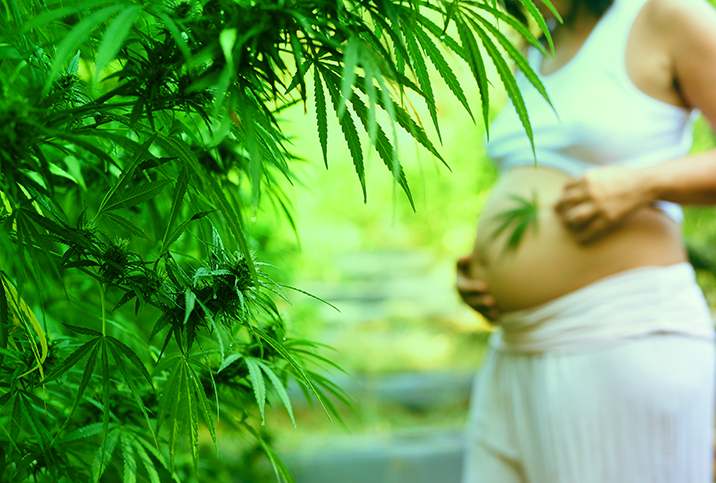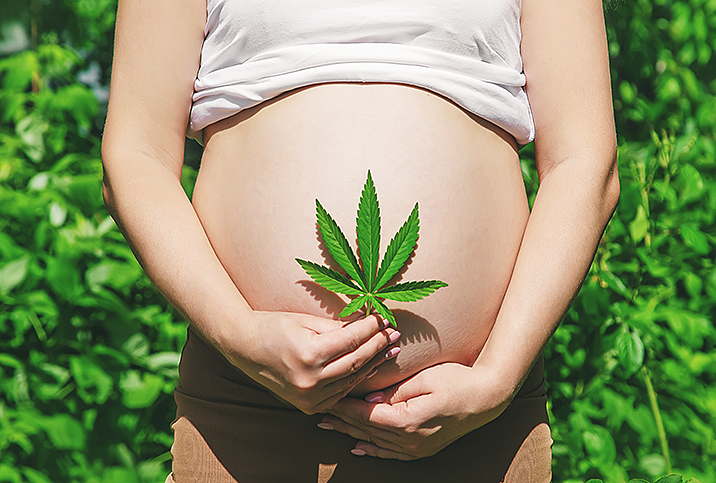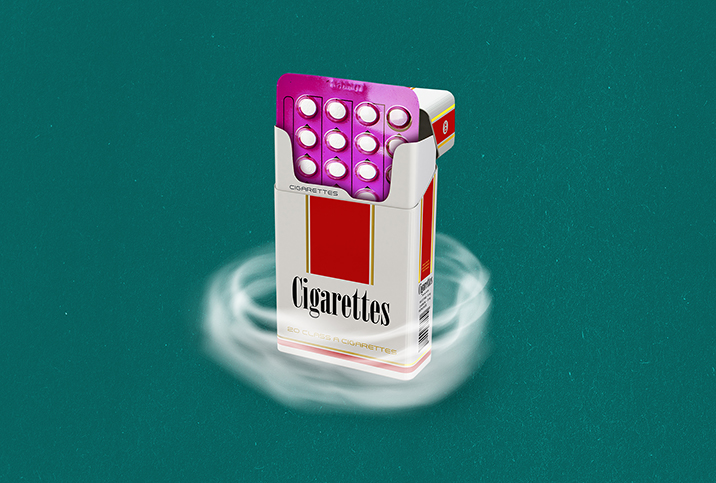New Research Shows Cannabis Use Is on the Rise Among Pregnant People

Marijuana use has been on the rise for the past two decades among the general population. The trend extends to pregnant people, with data from the National Survey on Drug Use and Health revealing that cannabis use during pregnancy more than doubled between 2002 and 2017.
Now, new research published in the American Journal of Drug and Alcohol Abuse suggests that mothers-to-be are more likely to use marijuana in states where it is legalized for recreational or medical use.
Study lead author Kathak Vachhani, a medical student at the University of Toronto, listed several factors that may be contributing to the rise of cannabis use among pregnant women: "Decriminalization of cannabis, legalization of medical and/or recreational use, increased availability, greater accessibility, reduced stigma about its use and some evidence—albeit inconclusive—about therapeutic effects for certain medical conditions."
The new research compared use among 1,992 pregnant women in three different locations in the United States: states where adult recreational use is permitted, states where only medical use is permitted and states where only cannabidiol (CBD) use is permitted. The study found women were an estimated 4.5 times more likely to use marijuana in states where medical or recreational use is legalized, compared with states that allow only CBD.
"Use of cannabis is advised against during pregnancy, yet it has increased with legalization," Vachhani said. "With the caveat of the small sample size, our study found that a large proportion of women are using it for recreational reasons."
Cannabis use during pregnancy
Pregnant women use cannabis for a variety of therapeutic reasons, Vachhani said.
"It is commonly used for nausea, vomiting and pain as well as to treat preexisting, nonpregnancy-related conditions like sleep and anxiety," she explained.
Marijuana use during pregnancy is problematic because of a lack of data on significant side effects and long-term outcomes, according to Mary Jane Minkin, M.D., a practicing gynecologist and clinical professor in the department of obstetrics, gynecology and reproductive sciences at the Yale University School of Medicine.
"There are some suggestions of developmental delays in kids exposed [to marijuana] in the uterus," Minkin said. "The American College of Obstetricians and Gynecologists does not recommend women use marijuana during pregnancy."
"The primary concern with use during pregnancy is its impact on the fetus," Vachhani added. "The potential effects and the long-term consequences of these effects are a topic of active research. The evidence thus far is mixed, in part, due to the heterogeneity of cannabis and self-reporting of use for scientific studies. Some studies report premature birth and reduced birth weight. Neurodevelopment of the fetus has also been reported to be affected, leading to inattention, hyperactivity, and poor working and short-term memory during adolescence and early adulthood."
More research is needed
In terms of CBD-only use, Vachhani said more research is needed to understand the risks.
"There is potential for some transfer of CBD to the fetus from the mother. Fetuses are different from adults as they have developing brains, and so the specific medical benefits seen among adults cannot be extrapolated to fetuses," Vachhani said.
The Food and Drug Administration (FDA) cautions against any use of marijuana or CBD during pregnancy and breastfeeding, she added.
Given the upswing in use during pregnancy and the associated risks, Vachhani and her researchers are calling for increased screening of pregnant people for the health of the parent and the fetus.
"Screening will provide an opportunity for the patient and physician to explore the underlying medical problem that the patient is using cannabis for," Vachhani said. "The physician will be able to recommend evidence-based treatment options in place of cannabis. Those using cannabis for recreational reasons can be informed about the risks to the fetus, and the patient can then make an informed decision about whether to use it or not."


















